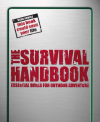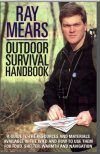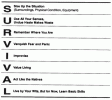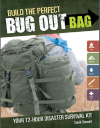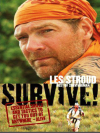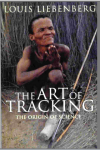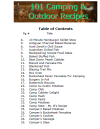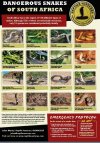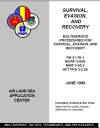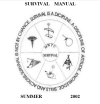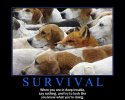You are using an out of date browser. It may not display this or other websites correctly.
You should upgrade or use an alternative browser.
You should upgrade or use an alternative browser.
Rough Camping & Survival Tips
Diamondhitch
AH legend
- Joined
- May 2, 2011
- Messages
- 3,030
- Reaction score
- 862
- Website
- www.diamondhitch.webs.com
- Deals & offers
- 1
- Media
- 77
- Member of
- SCI
- Hunted
- Canada (AB, SK, NWT, BC) USA (NM, TX) South Africa (Limpopo, KZN, Free State, Eastern Cape, Northen Cape), Kyrgyzstan, Czech Republic
A good survival bag should contain this or at least some some variation of this...

Quick comment on the potassium permanganate. This is used to stain faded antlers and is a permanent dye so watch how you store and apply it.
I didn't mention Penicillin powder, I don't carry it when backpacking but it comes along with the horses.
Last edited by a moderator:
Cliffy
AH elite
- Joined
- Sep 7, 2009
- Messages
- 1,090
- Reaction score
- 127
- Media
- 7
- Hunted
- Hunted Zim, RSA (2), Namib(2), going again, Calif, Oregon, Arizona, Texas, Virginia, Idaho, South Dakota, Montana, Nevada, MO
You guys are all missing the point of being prepared- (Boy Scouts?)
With today's SAR capability all you need is a SAT phone, a fifth of Jim Beam
and a backpackers bottle of gasoline to start the fire!!!!!!!!!
1. SAT phone-call for help
2. Jim Beam to keep you warm
3. Gasoline for the signal fire (Boy Scout fire- 1 match and a cup of gasoline!)
Easy as 1,2,3
With today's SAR capability all you need is a SAT phone, a fifth of Jim Beam
and a backpackers bottle of gasoline to start the fire!!!!!!!!!
1. SAT phone-call for help
2. Jim Beam to keep you warm
3. Gasoline for the signal fire (Boy Scout fire- 1 match and a cup of gasoline!)
Easy as 1,2,3

arizona
AH enthusiast
- Joined
- Feb 7, 2012
- Messages
- 280
- Reaction score
- 83
- Media
- 24
- Member of
- SCI, NRA
- Hunted
- South Africia, Botswana, Alaska, Canada, Most Western US, Kyrgyzstan, Namibia
:agree:You guys are all missing the point of being prepared- (Boy Scouts?)
With today's SAR capability all you need is a SAT phone, a fifth of Jim Beam
and a backpackers bottle of gasoline to start the fire!!!!!!!!!
1. SAT phone-call for help
2. Jim Beam to keep you warm
3. Gasoline for the signal fire (Boy Scout fire- 1 match and a cup of gasoline!)
Easy as 1,2,3
Diamondhitch
AH legend
- Joined
- May 2, 2011
- Messages
- 3,030
- Reaction score
- 862
- Website
- www.diamondhitch.webs.com
- Deals & offers
- 1
- Media
- 77
- Member of
- SCI
- Hunted
- Canada (AB, SK, NWT, BC) USA (NM, TX) South Africa (Limpopo, KZN, Free State, Eastern Cape, Northen Cape), Kyrgyzstan, Czech Republic
You guys are all missing the point of being prepared- (Boy Scouts?)
With today's SAR capability all you need is a SAT phone, a fifth of Jim Beam
and a backpackers bottle of gasoline to start the fire!!!!!!!!!
1. SAT phone-call for help
2. Jim Beam to keep you warm
3. Gasoline for the signal fire (Boy Scout fire- 1 match and a cup of gasoline!)
Easy as 1,2,3
Its always a 1 match fire when you use a little liquid indian!
I prefer the company of Captain Morgan though.

Some very good,practical and sensible advice that I've come across from somewhere on the open source net....
[All credit to this unknown author..]
What it Takes to Survive
It takes a lot more than the knowledge and skills to build a shelter, get food, make a fire without matches and navigate without a compass to live successfully through a survival situation. Some people with little or no survival training have managed to survive life-threatening circumstances. Some people with survival training have not used their skills and died.
A key ingredient in any survival situation is your mental attitude. It is important to have survival skills but having the will to survive is essential. Without the determination to survive, acquired survival skills won't help.
The person in a survival environment faces many stresses that ultimately impact on his attitude. These stresses can produce thoughts and emotions that, if poorly understood, can transform a confident, well-trained person into an indecisive, ineffective individual with questionable ability to survive. Every person must be aware of and be able to recognize those stresses commonly associated with survival.
It is also vital you be aware of your reactions to the wide variety of stresses associated with survival.
The following paragraphs expand on the meaning of each letter of the word survival. Study and remember what each letter signifies because you may some day have to make it work for you.
S - Size Up the Situation
Size Up Your Surroundings
Determine the pattern of the area. Get a feel for what is going on around you. Every environment has a rhythm or pattern. This rhythm or pattern includes animal and bird noises and movements and insect sounds.
Size Up Your Physical Condition
An accident or the trauma of being in a survival situation may have caused you to overlook wounds you received. Check your wounds and give yourself first aid. Take care to prevent further bodily harm. For instance, in any climate, drink plenty of water to prevent dehydration. If you are in a cold or wet climate, put on additional clothing to prevent hypothermia.
Size Up Your Equipment
Check to see what equipment you have and what condition it is in.
U - Use All Your Senses, Undue Haste Makes Waste
Consider all aspects of your situation before you make a decision and a move. If you act in haste, you may forget or lose some of your equipment. In your haste you may also become disoriented so that you don't know which way to go. Plan your moves. Be ready to move out quickly without endangering yourself. Use all your senses to evaluate the situation. Note sounds and smells. Be sensitive to temperature changes. Be observant.
R - Remember Where You Are
Spot your location on your map and relate it to the surrounding terrain. This is a basic principle that you must always follow. If there are other persons with you, make sure they also know their location.
Always know who in your group, vehicle, or aircraft has a map and compass. If that person is killed, you will have to get the map and compass from him.
Pay close attention to where you are and to where you are going.
Do not rely on others in the group to keep track of the route.
Constantly orient yourself. Always try to determine the location of local water sources.
V - Vanquish Fear and Panic
The greatest enemies in a survival situation are fear and panic. If uncontrolled, they can destroy your ability to make an intelligent decision. They may cause you to react to your feelings and imagination rather than to your situation. They can drain your energy and thereby cause other negative emotions. Previous survival and evasion training and self-confidence will enable you to vanquish fear and panic.
I - Improvise
Learn to improvise. Take a tool designed for a specific purpose and see how many other uses you can make of it. Learn to use natural objects around you for different needs. An example is using a rock for a hammer. No matter how complete a survival kit you have with you, it will run out or wear out after a while. Your imagination must take over when your kit wears out.
V - Value Living
All of us were born kicking and fighting to live, but we have become used to the soft and easy life. We have become creatures of comfort. We dislike inconveniences and discomforts. When you are faced with a survival situation with its stresses, inconveniences, and discomforts the will to survive is vital. The experience and knowledge you have gained through life and training will have a bearing on your will to live. Stubbornness, a refusal to give in to problems and obstacles that face you, will give you the mental and physical strength to endure.
A - Act Like us Natives
African people and animals have adapted to the African environment. Watch how the people go about their daily routine. When and what do they eat? When, where, and how do they get their food? When and where do they go for water? What time do they usually go to bed and get up? These actions are important to you when you are trying to survive.
Animal life in the area can also give you clues on how to survive. Animals also require food, water, and shelter. By watching them, you can find sources of water and food.
Animals cannot serve as an absolute guide to what you can eat and drink.
Many animals eat plants that are toxic to humans.
By studying the people, you learn to respect them, often make valuable friends, and - most important - you learn how to adapt to their environment and increase your chances of survival.
L - Live by Your Wits, But for Now, Learn Basic Skills
Without training in basic skills for surviving your chances of survival are slight. Learn these basic skills now--not when you are headed for Africa. How you decide to equip yourself before your safari will impact on whether or not you survive. You need to know about Africa and you must practice basic skills geared to our continent. Practice basic survival skills during all training programs and exercises. Survival training reduces fear of the unknown and gives you self-confidence. It teaches you to live by your wits.
Develop a survival pattern that lets you beat the enemies of survival. This survival pattern must include food, water, shelter, fire, first aid, and signals placed in order of importance. For example, in a cold environment, you would need a fire to get warm; a shelter to protect you from the cold, wind, and rain or snow; traps or snares to get food; a means to signal friendly aircraft; and first aid to maintain health. If injured, first aid has top priority no matter what climate you are in.
----------------------------------------------------------------------------------------------------------
The Importance of Planning
Detailed prior planning is essential in potential survival situations. An important aspect of prior planning is preventive medicine: ensure that you have no dental problems and that your immunizations are current. This will help you avoid potential dental or health problems. A dental problem in a survival situation will reduce your ability to cope with other problems that you face. Failure to keep your shots current may mean your body is not immune to diseases that are prevalent in the area. Also make sure you have yellow fever and Hepatitis A and B injections.
Even the smallest survival kit, if properly prepared, is invaluable when faced with a survival problem
Salt
Salt is essential. A normal daily diet should include 10mg (ï½½ ounce) of salt. Salt is lost through sweating and urine and needs to be replaced. The symptoms of salt deficiency are cramps, dizziness, nausea and tiredness.
Survival planning means preparation. Make sure you have survival items and know how to use them.
Stress
Stress is a condition everyone experiences. It can be described as your reaction to pressure as you physically, mentally, emotionally, and spiritually respond to life's tensions.
Stress can show your ability to handle pressure without breaking you; it will test your adaptability and flexibility; and it can stimulate you to do your best. Because we usually do not consider unimportant events stressful, stress can also be an excellent indicator of the significance we attach to an event.
Excess stress leads to distress. Common signs of distress are difficulty making decisions, angry outbursts, forgetfulness, low energy levels, constant worrying, a tendency to make mistakes, thoughts about death or suicide, trouble getting along with others, withdrawal from others, hiding from responsibilities and carelessness.
Survival Stressors
Stressors are the obvious cause while stress is the response. Once the body recognizes the presence of a stressor, it then begins to act to protect itself.
Injury, Illness, or Death
Injury, illness, and death are real possibilities a survivor has to face. Even if illness and injury don't lead to death, they add to stress through the pain and discomfort they generate.
Uncertainly and the fear of loss of control
Some people have difficulties in situations where everything is not as expected or desired. Learn to live with it. In daily life and in a survival situation nothing is guaranteed.
Environment
Heat, cold, rain, winds, mountains, swamps, deserts, insects, dangerous reptiles, and other animals are some of the challenges that will have to be faced by a person wanting to survive.
Hunger and Thirst
Without food and water you will weaken and eventually die. Obtaining and preserving food and water takes on increasing importance as the duration of time in a survival situation is increases.
Fatigue
Forcing yourself to continue surviving may be tiring in itself and it is possible to become so fatigued that the act of just staying awake is stressful.
Isolation
A significant stressor in survival situations is that often a person or team has to rely solely on its own resources.
The object is not to avoid stress, but rather to manage the stressors of survival and make them work for you
Natural Reactions
Fear
Fear is an emotional response to dangerous circumstances that is believed to have the potential to cause death, injury, or illness. Fear can have a positive function if it encourages caution in situations where recklessness could result in injury. Fear can also immobilize you if you do not manage it.
--------------------------------------------------------------------------------------------------------
Anxiety
Anxiety is uneasy, apprehensive feeling that something serious is going to go wrong. Anxiety is reduced by physically doing the things that will ensure your survival. As you reduce anxiety, you also bring under control the source of that anxiety your fears. If you are not careful, anxiety can overwhelm you to the point where you become easily confused and have difficulty thinking with disastrous consequences.
Anger and Frustration
Frustration arises when someone is continually thwarted in his attempts to reach a goal. When in a survival situation, your goal is to stay alive until you can reach help or until help can reach you. To achieve this, you must complete some unusual tasks with minimal resources. It is inevitable that something will go wrong but with your life on the line, every mistake is magnified in terms of its importance. It follows that sooner or later in a survival situation you will have to cope with frustration.
A result of frustration is anger. Frustration and anger encourage impulsive reactions, irrational behavior and bad-out decisions. In some instances, an "I quit" attitude results. If you quit in a survival situation, you die. It's as simple as that. If you can harness and properly channel these emotions you do what you have to do.
Depression
Depression is closely linked with frustration and anger. A frustrated person becomes angrier as he fails to reach his goals. A destructive cycle between anger and frustration continues until you become worn down-physically, emotionally, and mentally. It is at this point that people give up. The focus shifts from "What can I do" to "There is nothing I can do."
Loneliness and Boredom
Loneliness and boredom is the test that brings your inner qualities to the surface. You may discover some hidden talents and abilities you never knew you had and tap into a reservoir of inner strength you never knew you had.
On the other hand, loneliness and boredom can be a great source of depression. Find ways to keep your mind productively occupied and develop a degree of self-sufficiency.
Guilt
The circumstances leading to your being in a survival setting are sometimes dramatic and tragic. It may be the result of an accident where there was a loss of life. It is not uncommon for survivors to feel guilty about being spared from death while others were not. Do not let guilt feelings prevent you from living.
--------------------------------------------------------------------------------
Preparation
Your goal in a survival situation is to stay alive. That is all. You are going to experience various thoughts and emotions that can help you or kill you depending on how you manage them. Don't be afraid of your natural reactions to abnormal situations - prepare yourself to manage them.
Know Yourself
Through training, family, and friends take the time to discover who you truly are. Strengthen your stronger qualities and develop the areas that you know are necessary to survive.
Anticipate Fears
You will have fears. People without fear are people without brains. Think about what would affect you the most if forced to survive alone. Train in those areas. You will not eliminate the fear, but you can build confidence in your ability to function despite fear.
Be Realistic
Make an honest assessment of situations. See them as they are, not as you want them to be. When you go into a survival setting with unrealistic expectations, you may be laying the groundwork for disaster.
Adopt a Positive Attitude
Learn to see the potential good in everything in survival situations and in life in general. This is a habit, not a gift.
Remember what is at Stake
Failure to be psychologically prepared to cope with survival leads to reactions such as depression, carelessness, inattention, loss of confidence, poor decision-making, and giving up before the body gives in. At stake is your life and your family members who depend on you to return to them.
Training
Prepare yourself to cope with the rigors of survival. Try to make survival items like traps, solar stills and weapons. It is fun and doing them and it will give you confidence to use your skills in a survival situation.
Stress Management
You often cannot control the survival circumstances but you can control your response to those circumstances. Learning stress management techniques is vital to remain calm and focused as you work to keep yourself and others alive. The will to survive can also be considered to be the refusal to give up.
--------------------------------------------------------------------------------
Unknown Factors
Many things can go wrong in a survival situation. A rescue team can miss your signal by a small margin, you can unexpectedly share your shoe with a poisonous scorpion or your bed with a mamba.
Many survivors have discovered that a survival experience is also a spiritual experience in which priorities are examined and reestablished. With death a very real possibility, they realized that they need more than their skills to survive and discovered that God is much more than just some religious idea.
Pray and ask for help - you will need it
Attachments
Last edited by a moderator:
Another one.. BOB
[click to download/read]
[I'VE GOT SOME MORE BOOKS AND WILL PUT THEM UP AS TIME PERMIT.]

View attachment Build the Perfect Bug Out Bag Your 72-Hour Disaster Survival Kit.pdf
[click to download/read]
[I'VE GOT SOME MORE BOOKS AND WILL PUT THEM UP AS TIME PERMIT.]

View attachment Build the Perfect Bug Out Bag Your 72-Hour Disaster Survival Kit.pdf
Attachments
Last edited by a moderator:
- Joined
- Dec 21, 2009
- Messages
- 4,996
- Reaction score
- 798
- Location
- Russellville
- Deals & offers
- 6
- Media
- 75
- Member of
- NAHC Life Member, NRA Life Member,SCI, Buckmasters
- Hunted
- USA(from Coast to Coast and Alaska), Germany, South Africa, Canada
Another one.. BOB
[click to download/read]
[I'VE GOT SOME MORE BOOKS AND WILL PUT THEM UP AS TIME PERMIT.]

View attachment 25147
Haven't seen that one going to have to look around and fnd me a copy.
Last edited by a moderator:
Here's another pdf book on the topic
[click to download/read]:happywave:

View attachment Les Stroud - Survive!.pdf
[click to download/read]:happywave:

View attachment Les Stroud - Survive!.pdf
Attachments
Last edited by a moderator:
Here's another interesting pdf book on the topic
[click to download/read]

View attachment Liebenberg-1990-The-Art-of-Tracking.pdf
[click to download/read]


View attachment Liebenberg-1990-The-Art-of-Tracking.pdf
Attachments
Last edited by a moderator:
SOME CAMP COOKING PDF BOOKS
enjoy!!
[click to read/download]

View attachment camp cooking 101.pdf

View attachment Voortrekker Resepte Copy.pdf
enjoy!!
[click to read/download]

View attachment camp cooking 101.pdf

View attachment Voortrekker Resepte Copy.pdf
Attachments
Last edited by a moderator:
My porcupine knopkierie survival hunting experiment.

It is strange how some seemingly unrelated thoughts can sometimes determine your actions, as happened to me the other day after reading this excellent and thought provoking article Living Off The Land: Delusions and Misconceptions About Hunting and Gathering some time back .Some very interesting points are raised and its an eye-opener for sure!
[What are the actual caloric requirements for a person to live in the wilderness, and what food resources would that require e.g. what would the survivor need to procure each day in the bush in order to live in a sustainable manner for a prolonged period of time?
Its really a research document about how much [3,300 calories] per day does your active body needs in a real survival situation, and how do you convert said amount of 3,300 calories per day into different food sources/animals per day without a fire-arm?.not so easy!!]
I could not agree more with what was said in that article about how difficult it is for modern man to survive sustainably over a long period of time out in the bush.
I hope that you will like this next adventure photo chronicle story of mine about a primitive hunt for porcupine in the Limpopo, from the making of a hunting club to the final conclusion of the hunt, and with the above mentioned article in mind and playing the 'what if....' game that only true survivalists/primitive hunters, old fools and the still young at heart tend to play when they get the opportunity to be alone out there!
One afternoon some months later, while I was [again unsuccessful] solo primitive spear hunting warthog in Limpopo, I came across a 'live' [active] porcupine hole in the ground, half concealed under a brush. Then, as I stood there looking at that hole, I suddenly started thinking back about what Ive recently been reading on the net by some very clever armchair primitive food provider survival experts, and their theorizing without any real practical experience of the reality out there, about how they would survive out in the bush with only the basic of equipment.
I dont say here for a moment that it could not be done, as sustainable survival has been done by many modern people all over the world, and in different and various terrain, [I myself have learned many useful things about this topic on the net, so I dont shoot it down.].Of course you can theoretically kill an elephant with just a knife, or cut off a finger/toe to feed yourself in bad circumstances [OH YEA??], but really, I must sometimes question some of these survival experts advice on some of these blogs!
Ive decided on the spot to hunt that porcupine that night, not with my trusted spear this time, but with a self-made hunting club [knopkierie] made on the spot, just to try something different in solo primitive equipment hunting under African conditions, purely for experiencing it for myself ?
If somebody else could learn something from my adventures [and my many-many failures!], I would be very happy, but really, I do these things from a young age primarily purely for my own experiences and enjoyment, and not to be another know-it-all bore
..
1] First, after founding this potential meat source [porcupine] location, is finding a suitable branch in a nearby tree from which to create a sturdy club [or knopkierie as we call it in this part of the world] that Im going to use to try to dispatch the porcupine with.
The branch finally selected is indicated on the photo if you look carefully...

2] One of my EDC pocket knives in the bush that day was a handy and versatile Victorinox lock blade folder with a potent little saw blade that I used to first saw the branch from the tree, and then to remove the unrequired twigs from this branch

3]
I next started to clean and shape the branch with my bigger blade [In this case a cold steel recon scout]...

4]
Here I'm nearly finished smoothing the branch down, and finishing the 2 ends of the kierie... [I truly believe that for this type of è¡“rimitive hunting situations, to carry a sharp 3- blade combo on my person at all times, ---first a good pocket multi-tool, then a bigger fixed blade belt knife and lastly-in my back pack- a smaller skinner/camp knife.]

5]
Here is the end product with a nicely weighted 'head' on one side, and a hole at the other end for a piece of rope to put around my wrist when hitting...
[It took me about an hour to make this knopkierie on the spot ,anyway, less time than it took me to try and write this article! lol!]

6]
Here is my hunting knopkierie on the right of the picture, with the porcupine hole in the left back ground half under the bush, [tonight I'll visit it...]

7]
That night, after a long time of sitting quietly in ambush, and later even starting to seriously doubting my own madness there alone in the moonlight while patiently waiting and hoping for a porcupine to emerge from its hole,[so many previous attempts over so many years were fruitless!]?. finally, a chance!
Although the moonlight was not that bright due to some clouds, one of the porcupines excellent senses let it became aware of me as soon as I quickly advanced on it with my raised club, in the process cutting it off from its hole. Just before I could whack it, it started turning its back on me [so as to provide me with its dangerous and extremely sharp and germ invested quills.]
The first blow aimed at its head thus connected it on its side quills, but before it could recover, I fortunately enough got a quick second blow in and connected it with my knopkierie again --this time on the side of the head and thereby killing it instantly...
While standing there in respect in the quiet night listening to the death-rattle of its quivers, let me as an older hunter be the first one to tell you that I know that I was extremely fortunate and lucky during this particular hunt, as it's not really that easy as it all sounds here, and Ill probably never ever be able to do it again!
I then called the game ranch owner and my good friend on my mobile to come and pick me and my prey up with his truck and called it a [successful] hunting night.
[Its not always that save/brave to stumble home for about 5 km through the dense Bushveld in the cloudy and humid moonlight night where there are leopard and hyena [not to even mention poisonous snakes!] in attendance, carrying a bleeding animal and armed only with my hunting knife and my knopkierie謫] any case, I really only wanted to push this primitive night hunting adventure only so far!]
Im sure it could be done, [by younger or braver hunters than me] but my adventure and experiment of proofing to myself that solo hunting a porcupine with a home-made knopkierie could be achieved once in a very rare blue moon by an average older hunter in a survival/provider crises situation was now over as far as I was concerned...
Here is the said knopkierie and the porcupine the next morning.

It makes a delicious meal, and stewed in a potjie with veggies etc., you would swear its lamb, as it got lovely tender red meat!
8]
Here is the porcupine with my 7inch hunting knife to give some comparison of its quills.

10]
Porcupines are also quite capable to defend themselves against big predators like leopard and such in the wild...


11] Some more [different] porcupine quills,just for size/length comparison.

12] Here is my next primitive hunting adventure that I'm already planning / dreaming of....

Using my C.S. bushman Bowie blade survival knife to make a spear with on location, and then to hopefully successfully and ethically solo primitive hunt a warthog with it...
[Sounds crazy hey?lol]
Well, after my next hunting trip, and if all goes well, I will make another photo chronicle of this eagerly awaited hunting adventure as well.
Until next time, and always remember that in this type of game its primarily all about the ethical hunting experience, [enjoying nature and the outing], and not so much all about the blood!
[Well, if you have this type of mind-set, then there is also never any unsuccessful hunts/trip!]
Always observe and learn!
[see the fond size for the benefit of some older readers here!lol!:wink: ]
]

It is strange how some seemingly unrelated thoughts can sometimes determine your actions, as happened to me the other day after reading this excellent and thought provoking article Living Off The Land: Delusions and Misconceptions About Hunting and Gathering some time back .Some very interesting points are raised and its an eye-opener for sure!
[What are the actual caloric requirements for a person to live in the wilderness, and what food resources would that require e.g. what would the survivor need to procure each day in the bush in order to live in a sustainable manner for a prolonged period of time?
Its really a research document about how much [3,300 calories] per day does your active body needs in a real survival situation, and how do you convert said amount of 3,300 calories per day into different food sources/animals per day without a fire-arm?.not so easy!!]
I could not agree more with what was said in that article about how difficult it is for modern man to survive sustainably over a long period of time out in the bush.
I hope that you will like this next adventure photo chronicle story of mine about a primitive hunt for porcupine in the Limpopo, from the making of a hunting club to the final conclusion of the hunt, and with the above mentioned article in mind and playing the 'what if....' game that only true survivalists/primitive hunters, old fools and the still young at heart tend to play when they get the opportunity to be alone out there!
One afternoon some months later, while I was [again unsuccessful] solo primitive spear hunting warthog in Limpopo, I came across a 'live' [active] porcupine hole in the ground, half concealed under a brush. Then, as I stood there looking at that hole, I suddenly started thinking back about what Ive recently been reading on the net by some very clever armchair primitive food provider survival experts, and their theorizing without any real practical experience of the reality out there, about how they would survive out in the bush with only the basic of equipment.
I dont say here for a moment that it could not be done, as sustainable survival has been done by many modern people all over the world, and in different and various terrain, [I myself have learned many useful things about this topic on the net, so I dont shoot it down.].Of course you can theoretically kill an elephant with just a knife, or cut off a finger/toe to feed yourself in bad circumstances [OH YEA??], but really, I must sometimes question some of these survival experts advice on some of these blogs!
Ive decided on the spot to hunt that porcupine that night, not with my trusted spear this time, but with a self-made hunting club [knopkierie] made on the spot, just to try something different in solo primitive equipment hunting under African conditions, purely for experiencing it for myself ?
If somebody else could learn something from my adventures [and my many-many failures!], I would be very happy, but really, I do these things from a young age primarily purely for my own experiences and enjoyment, and not to be another know-it-all bore
..
1] First, after founding this potential meat source [porcupine] location, is finding a suitable branch in a nearby tree from which to create a sturdy club [or knopkierie as we call it in this part of the world] that Im going to use to try to dispatch the porcupine with.
The branch finally selected is indicated on the photo if you look carefully...

2] One of my EDC pocket knives in the bush that day was a handy and versatile Victorinox lock blade folder with a potent little saw blade that I used to first saw the branch from the tree, and then to remove the unrequired twigs from this branch

3]
I next started to clean and shape the branch with my bigger blade [In this case a cold steel recon scout]...

4]
Here I'm nearly finished smoothing the branch down, and finishing the 2 ends of the kierie... [I truly believe that for this type of è¡“rimitive hunting situations, to carry a sharp 3- blade combo on my person at all times, ---first a good pocket multi-tool, then a bigger fixed blade belt knife and lastly-in my back pack- a smaller skinner/camp knife.]

5]
Here is the end product with a nicely weighted 'head' on one side, and a hole at the other end for a piece of rope to put around my wrist when hitting...
[It took me about an hour to make this knopkierie on the spot ,anyway, less time than it took me to try and write this article! lol!]

6]
Here is my hunting knopkierie on the right of the picture, with the porcupine hole in the left back ground half under the bush, [tonight I'll visit it...]

7]
That night, after a long time of sitting quietly in ambush, and later even starting to seriously doubting my own madness there alone in the moonlight while patiently waiting and hoping for a porcupine to emerge from its hole,[so many previous attempts over so many years were fruitless!]?. finally, a chance!
Although the moonlight was not that bright due to some clouds, one of the porcupines excellent senses let it became aware of me as soon as I quickly advanced on it with my raised club, in the process cutting it off from its hole. Just before I could whack it, it started turning its back on me [so as to provide me with its dangerous and extremely sharp and germ invested quills.]
The first blow aimed at its head thus connected it on its side quills, but before it could recover, I fortunately enough got a quick second blow in and connected it with my knopkierie again --this time on the side of the head and thereby killing it instantly...
While standing there in respect in the quiet night listening to the death-rattle of its quivers, let me as an older hunter be the first one to tell you that I know that I was extremely fortunate and lucky during this particular hunt, as it's not really that easy as it all sounds here, and Ill probably never ever be able to do it again!
I then called the game ranch owner and my good friend on my mobile to come and pick me and my prey up with his truck and called it a [successful] hunting night.
[Its not always that save/brave to stumble home for about 5 km through the dense Bushveld in the cloudy and humid moonlight night where there are leopard and hyena [not to even mention poisonous snakes!] in attendance, carrying a bleeding animal and armed only with my hunting knife and my knopkierie謫] any case, I really only wanted to push this primitive night hunting adventure only so far!]
Im sure it could be done, [by younger or braver hunters than me] but my adventure and experiment of proofing to myself that solo hunting a porcupine with a home-made knopkierie could be achieved once in a very rare blue moon by an average older hunter in a survival/provider crises situation was now over as far as I was concerned...
Here is the said knopkierie and the porcupine the next morning.

It makes a delicious meal, and stewed in a potjie with veggies etc., you would swear its lamb, as it got lovely tender red meat!
8]
Here is the porcupine with my 7inch hunting knife to give some comparison of its quills.

10]
Porcupines are also quite capable to defend themselves against big predators like leopard and such in the wild...


11] Some more [different] porcupine quills,just for size/length comparison.

12] Here is my next primitive hunting adventure that I'm already planning / dreaming of....

Using my C.S. bushman Bowie blade survival knife to make a spear with on location, and then to hopefully successfully and ethically solo primitive hunt a warthog with it...
[Sounds crazy hey?lol]
Well, after my next hunting trip, and if all goes well, I will make another photo chronicle of this eagerly awaited hunting adventure as well.
Until next time, and always remember that in this type of game its primarily all about the ethical hunting experience, [enjoying nature and the outing], and not so much all about the blood!
[Well, if you have this type of mind-set, then there is also never any unsuccessful hunts/trip!]
Always observe and learn!
[see the fond size for the benefit of some older readers here!lol!:wink:
 ]
]Attachments
-
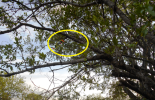 1.png685.3 KB · Views: 356
1.png685.3 KB · Views: 356 -
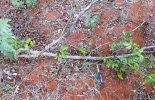 2.JPG188 KB · Views: 360
2.JPG188 KB · Views: 360 -
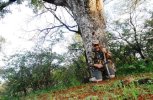 3.JPG175.5 KB · Views: 364
3.JPG175.5 KB · Views: 364 -
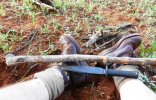 4.JPG179.4 KB · Views: 340
4.JPG179.4 KB · Views: 340 -
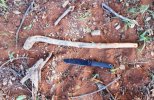 5.JPG179.2 KB · Views: 345
5.JPG179.2 KB · Views: 345 -
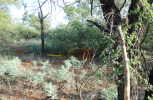 6r.png732 KB · Views: 348
6r.png732 KB · Views: 348 -
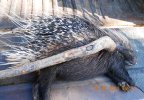 7.JPG169.4 KB · Views: 384
7.JPG169.4 KB · Views: 384 -
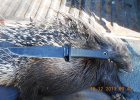 8 .JPG182.9 KB · Views: 394
8 .JPG182.9 KB · Views: 394 -
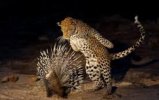 9 (2).jpg29 KB · Views: 345
9 (2).jpg29 KB · Views: 345 -
 9.jpg53.5 KB · Views: 328
9.jpg53.5 KB · Views: 328 -
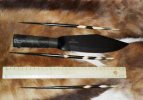 10.JPG36.7 KB · Views: 343
10.JPG36.7 KB · Views: 343 -
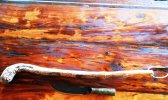 11.JPG142.5 KB · Views: 364
11.JPG142.5 KB · Views: 364 -
 gt.jpg46.5 KB · Views: 343
gt.jpg46.5 KB · Views: 343
Last edited by a moderator:
tx wheels
here are some info and identification photos of some of the most poisonous snakes that you could [hopefully not!] encounter during your safari .....

and here is a more detailed 'good to know' PDF [click to download] info document on these snakes--
View attachment Cobras_and_Mambas.pdf
here are some info and identification photos of some of the most poisonous snakes that you could [hopefully not!] encounter during your safari .....

and here is a more detailed 'good to know' PDF [click to download] info document on these snakes--
View attachment Cobras_and_Mambas.pdf
Attachments
Last edited by a moderator:
Another PDF Army manual 

View attachment survival.pdf
Special Forces Caching Techniques
View attachment Special Forces Caching Techniques - TC 31-29A.pdf


View attachment survival.pdf
Special Forces Caching Techniques
View attachment Special Forces Caching Techniques - TC 31-29A.pdf
Attachments
Last edited by a moderator:
Another PDF on the topic...:thumb:

View attachment US Marine Corps MWTC Summer Survival Course Handbook - MSVX.02.01.pdf

View attachment US Marine Corps MWTC Summer Survival Course Handbook - MSVX.02.01.pdf
Attachments
Last edited by a moderator:
- Joined
- Sep 12, 2010
- Messages
- 18,179
- Reaction score
- 61,215
- Location
- Zambia
- Website
- www.takerireservezambia.com
- Deals & offers
- 29
- Media
- 363
- Articles
- 24
- Member of
- sci int,wpaz, PGOAZ
- Hunted
- zambia, tanzania, zimbabwe,Mozambique ,hungary, france, england
willem nice story on the porcupine. i missed it when you put it on as i was in a survival situation at the time in las vegas :eyecrazy::beer:
Members online
- TSIBINDI
- Garciamarquez1918
- Jefferry404
- Rubberhead
- 318AE
- barton055
- Hammergun
- thoma018
- Bos en Dal SAFARIS
- thegreyghost52
- Elkeater
- 375 Ruger Fan
- AfricaHunting.com
- Flipper Dude
- foxtrot1
- Fryeguy
- Eric Zelanko
- Leadwood
- Rare Breed
- Midas8000
- Rafiki
- ketlson
- eyedok
- Captain Munro
- TNDave
- Lee in Texas
- ROCK53
- Dirtdart
- scott fairchild
- mdwest
- Berettaco
- SStomcat
- Andrew Short
- Bonk
- Russ16
- Mully
- Jeff505
- GerardV
- BAYLY SIPPEL SAFARIS
- JB_AH
- Beck
- JG26Irish_2
- Labman
- KJE81
- jasyblood
- WAB
- farmer_john
- Beethoven
- Kurt Swanson
- PanhandlinPat
Total: 132,685 (members: 1,155, guests: 131,530)
Forum statistics
Latest profile posts
Wife and I will attend ah dinner in Nashville Friday night. Jay Sheets and wife Chris
An excellent AH member right here! I had a fantastic transaction with Hornedfrogbbq (I was the seller). His communication was first rate, payment was extremely fast, and I would have absolutely no reservations at all dealing with him again. Thank you, F!
Here we are, the last day of the show in Denver, it's been a good show but expecting a quiet day today. I will be back for-sure to do this show next year and maybe also do the one in Sacramento California.
On Monday I will be hitting the road driving from Denver and eventually make it down to Atlanta for the flight home.
its going to be a good year!
On Monday I will be hitting the road driving from Denver and eventually make it down to Atlanta for the flight home.
its going to be a good year!

